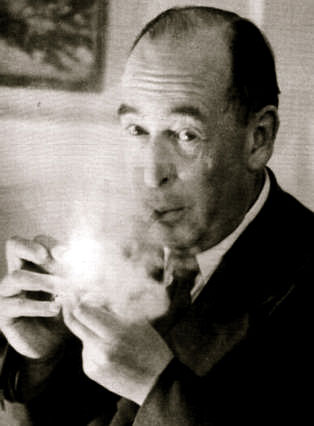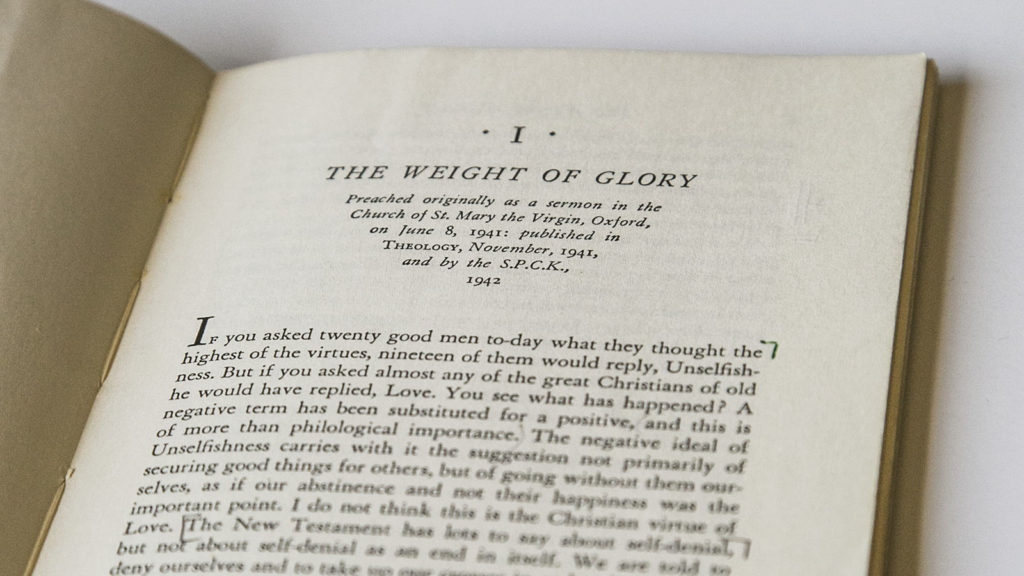
“What does not satisfy when we find it,” wrote C. S. Lewis, “was not the thing we were desiring.” That short statement came in the middle of his first Christian book, The Pilgrim’s Regress, and it summarizes the whole point of the book, wherein the protagonist comes back to the Christian faith that he didn’t desire at the outset of his journey: he finally realizes that what he was running away from was the real thing after all.
The book is, to a great extent, Lewis’s explanation of his own journey to faith, a journey that was always seeking “joy,” but never quite finding the source of it—until he reluctantly had to conclude that God was the Ultimate Reality and that joy emanated only from Him.
It’s a theme that stayed with him throughout his life. It shows up prominently, of course, in his autobiography, Surprised By Joy. It’s also a key feature of his deeply thought-provoking sermon that he called “The Weight of Glory.” In it, he catalogs how people are always thinking they have found the true source of joy, only to be disappointed. Most people simply identify the source as beauty, he says. The poet William Wordsworth linked it to “certain moments in his own past.” Yet Lewis believes that if Wordsworth could have time-traveled back into that past, “he would not have found the thing itself, but only the reminder of it.”

What follows is one the most sublime passages in all of Lewis’s writings (which is difficult to say when one considers how many sublime passages emanated from his pen). I give it in full.
The books or the music in which we thought the beauty was located will betray us if we trust to them; it was not in them, it only came through them, and what came through them was longing.
These things—the beauty, the memory of our own past—are good images of what we really desire; but if they are mistaken for the thing itself they turn into dumb idols, breaking the hearts of their worshippers.
For they are not the thing itself; they are only the scent of a flower we have not found, the echo of a tune we have not heard, news from a country we have never yet visited.
Do you think I am trying to weave a spell? Perhaps I am; but remember your fairy tales. Spells are used for breaking enchantments as well as for inducing them. And you and I have need of the strongest spell that can be found to wake us from the evil enchantment of worldliness which has been laid upon us for nearly a hundred years.
We are seventy-eight years out from when Lewis delivered those words in his sermon, but the evil enchantment of worldliness has not abated. We continue to set up dumb idols; the result is a world of brokenness. They are not the thing itself, but only faint whispers—a scent or an echo—of the Real Thing.
It’s time to give God, through Jesus Christ, the love and obedience He deserves. He is the Real Thing.
